The events in Syria were a conspiracy for Iran's exit from the country.
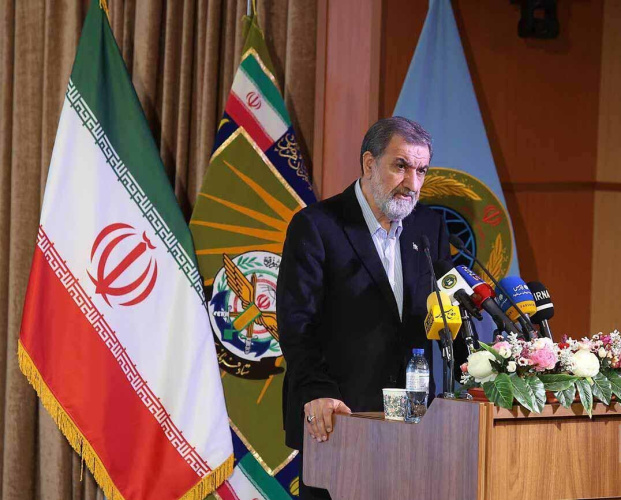
According to the Center for Communications and International Relations at the National Defense University, the second gathering of the university's alumni took place on Sunday, January 13, 2025. The event was attended by a number of commanders and veterans of the Sacred Defense at the university.
At this ceremony, Lieutenant General Dr. Mohsen Rezaei, the former Commander of the Islamic Revolutionary Guard Corps during the Sacred Defense, Major General Dr. Ismail Ahmadi-Moghadam, the President of the Supreme National Defense University, Major General Dr. Mahmoud Sheikh Hasani, the Deputy for Education and Training of the General Staff of the Armed Forces, Major General Dr. Abdolali Pour-shasb, the Deputy of the Shahid Qassem Soleimani Research Institute for Defense Sciences and Knowledge, and Brigadier General Dr. Ahmad Vahidi, the former Commander of the Quds Force of the IRGC, along with a number of commanders and veterans from the Sacred Defense era, were present.
At this ceremony, the Commander of the Islamic Revolutionary Guard Corps during the Sacred Defense emphasized the historical review of events following World War II. He stated that after the war, two systems—capitalism and communism—emerged globally, and for five decades, international events were controlled by these two hegemonies. During this time, a weak movement known as the Non-Aligned Movement emerged, claiming to be independent of these two poles, although, in practice, this was not the case.
Lieutenant General Mohsen Rezaei continued: "With every incident and war occurring in the world, a kind of alignment formed behind these two poles. Amidst this international stagnation, a significant event took place in Iran—the Islamic Revolution."
He stated: "A few months after the revolution, the Soviet Union invaded Afghanistan, and the United States, through Saddam, attacked Iran. For the first time, they joined forces against Iran, but both ultimately faced defeat."
The Secretary of the Supreme Council for Economic Coordination of the Heads of the Branches stated: "After the collapse of the Soviet Union, the United States, seeing no competitor, entered a period of unilateralism. During George W. Bush's presidency, with military campaigns in Afghanistan and Iraq, it aimed to fill the power vacuum. This hegemony was led by neoconservatives, and Trump is also a remnant of this movement."
Dr. Mohsen Rezaei expressed: "After a while, the U.S. realized its mistakes and began its withdrawal from Iraq. Subsequently, it embarrassingly retreated from Afghanistan as well, leading them to perceive their status as a superpower as being in jeopardy."
During Trump's first term, this sense of weakness led to a decision to restore power. For several years, the U.S. has been contemplating a proxy hegemony in West Asia by positioning Israel as the center of this hegemony and subsequently bringing Arab countries under the Abraham Accords. Following this, they engaged in confrontations with the Resistance Axis to achieve this goal.
He stated: "The ambitious dream of this hegemony was state-building in the countries of the Resistance Axis. Thus, in the past year, there were not several wars occurring in Gaza, Lebanon, Syria, Iraq, Yemen, and Iran; rather, there was a single war spanning multiple countries aimed at achieving that ambitious dream."
The Commander of the Islamic Revolutionary Guard Corps during the Sacred Defense emphasized: "After failing to achieve its objectives in Gaza, the Zionist regime aimed to advance to the Litani River in its aggression against Lebanon. However, it faced Lebanese resistance and ultimately had to accept a ceasefire."
Dr. Mohsen Rezaei commented on the events in Syria: "It is anticipated that conflicts will arise in Syria, both internally and among the powers seeking to play a role in this country. While we desire stability and security in Syria, this incident was a temporary mission, with the objective of expelling Iran from Syria."
He added: "Twenty-five days after Operation Al-Aqsa on November 1, 2023, I wrote in a letter to the late Ayatollah Raisi that a significant event has occurred in a small geography, and this incident will extend to Lebanon, Syria, and Iraq as well. This prediction stems from a strategic historical analysis, highlighting the need for such a program in the National Defense University."
The Secretary of the Supreme Council for Economic Coordination of the Heads of Powers continued: "The United States wants to remain at least one of the top two powers, while the Zionist regime harbors the dream of extending its reach to the Euphrates."
General Rezaei noted: "The significant achievement of the Sacred Defense for us was the value of human resources. The Syrian regime's neglect of this value, weakening national national cohesion or strong sense of national belonging and unity for the stability of a country, and disregard for human and popular forces led to the downfall of Bashar al-Assad."
He concluded by stating: "War consists of three layers: first, hardware, which includes equipment and tools; second, software, which involves expert affairs and planning; and third, brainware, which encompasses commanders, command structure, and operational initiative. Therefore, recent events must be studied and analyzed carefully."
Before him, General Dr. Ismail Ahmadi Moghadam, the head of the Supreme National Defense University, stated in his remarks that over 200 foreign students are studying at the National Defense University. He emphasized that the production of governance knowledge, strategic management, and the training of high-caliber managers are among the university's goals. The presence of foreign students at this university is part of our scientific authority.
At this ceremony, attended by a number of commanders and veterans of the Sacred Defense, General Ahmadi Moghadam stated: "Each of you esteemed veterans and commanders plays a role in the advancement and excellence of the National Defense University."
He continued: "The National Defense University began its work in the early 1990s, and since then, we have witnessed growth and excellence in both quantity and quality. In 1994, the Supreme Leader of the Islamic Revolution (may his noble presence endure) first raised the topic of the Islamic civilization revival at this university and acknowledged its important role in this regard."
The head of the National Defense University continued by stating that scientific power is the cornerstone of all components and national strengths. He emphasized that this university has taken on a new role in the governance of the country by establishing a School of Governance, with the production of governance knowledge, strategic management, and the training of high-caliber managers as its objectives.
In the final part of the ceremony, Brigadier General Dr. Malekzadeh, the former deputy of the university, delivered a speech, and three distinguished graduates from previous courses were honored.





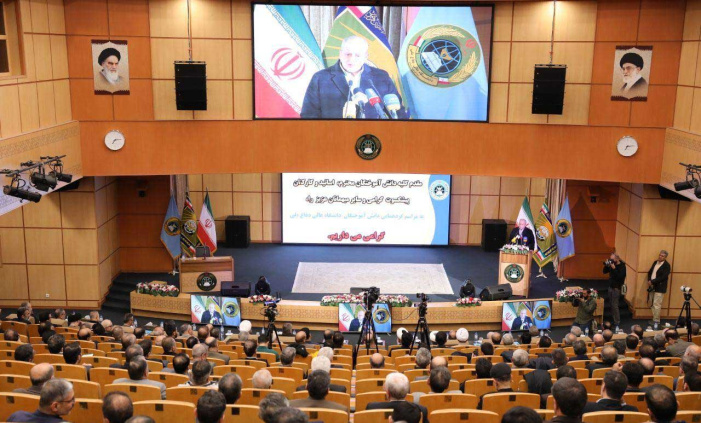
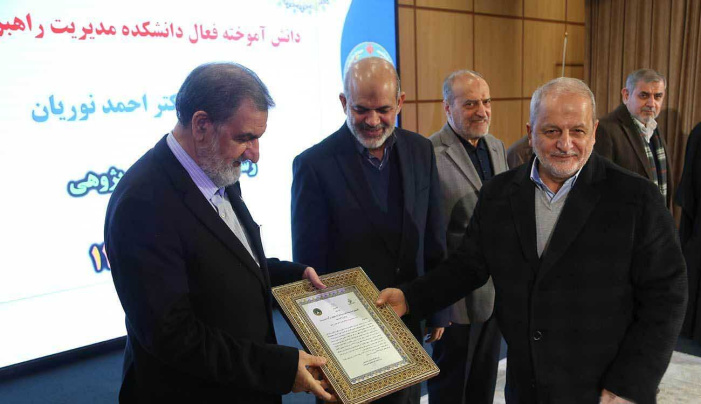

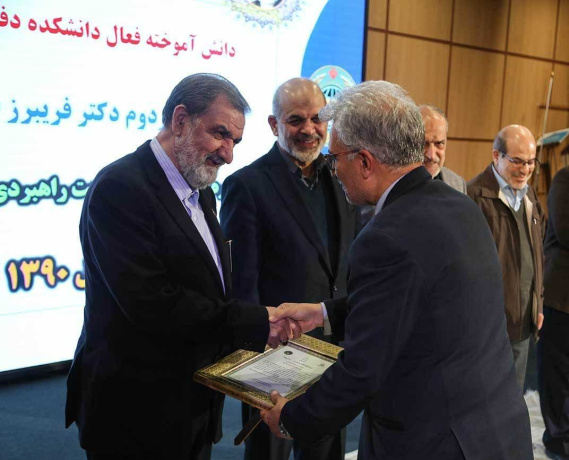
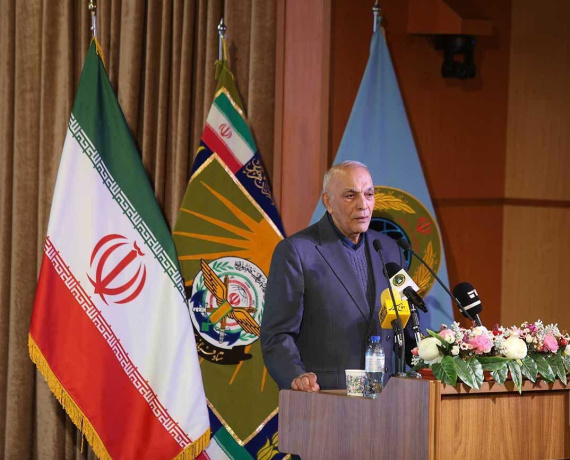



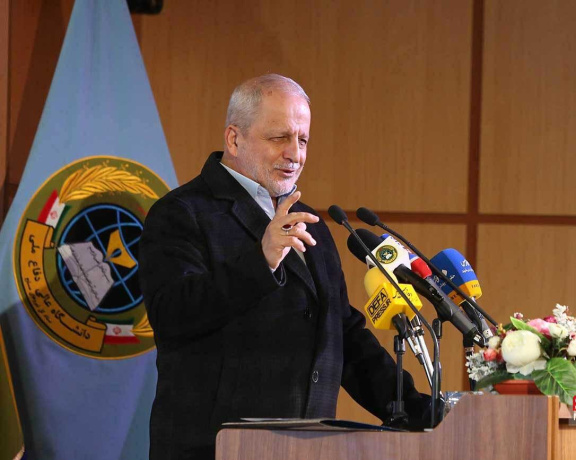

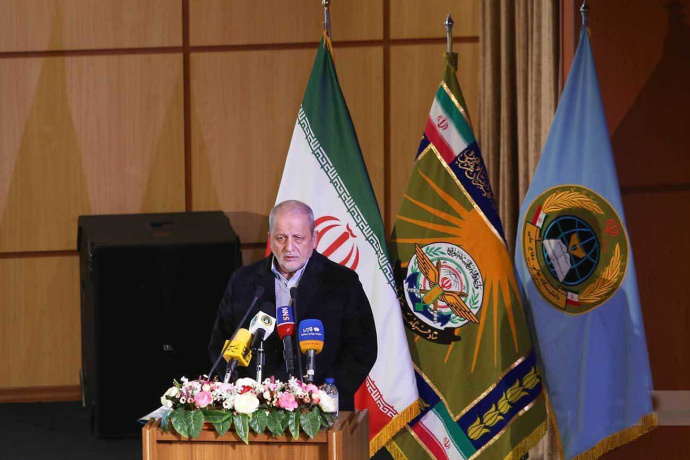

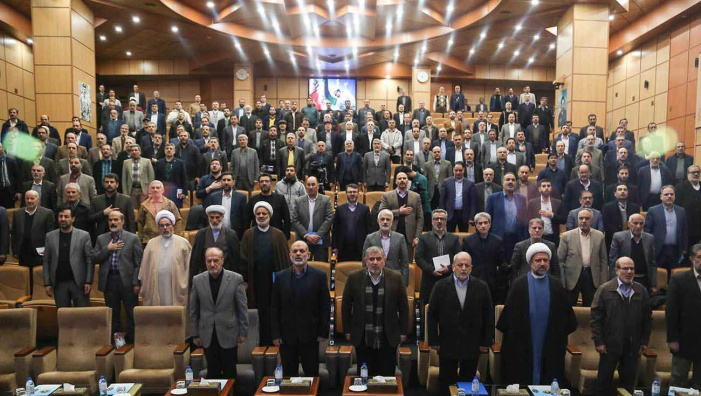






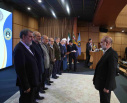












Your Comment :